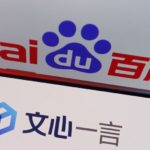Hospitalization is more expensive due to room charges, nursing care and other expenses.
Singapore’s hospital beds are in short supply, with more than 80% of beds located in government-owned medical facilities, forcing more patients to seek faster and more affordable treatment in outpatient care centres.
Advanced Urology Associates chief executive Gerald Tan said public hospitals are currently at capacity as more elderly patients suffer from falls, strokes and other health problems. Asian Healthcare.
“These patients often stay in the hospital for a long time,” he said. “The Ministry of Health is building new hospitals, but it will take several years for these hospitals to be completed and staffed.”
Citizen International, based in Massachusetts, said Singapore, like many countries, has an aging population and critics say the country’s long-term care facilities and hospice programs have not kept pace with the rest of the health care system. .
Ambulatory care helps address these challenges by speeding up procedures across specialties, including urology in Tan’s case. “For procedures such as kidney stone or prostate blockage, patients don’t stay more than a full day.”
In addition to surgeries, the outpatient care center also serves as a one-stop facility. “Patients can come in for exams, blood tests and CT scans.”
This also applies to ophthalmology and cardiology.
Eagle Eye Center consultant ophthalmologist Val Phua said in addition to glaucoma and retinal detachment treatment, the eye care center now also offers intravitreal injections and laser treatments to help patients avoid additional hospital bills.
“Inpatient care is generally more expensive due to costs associated with room rates, nursing care, and applicable additional facility fees,” said Phua, who specializes in cataract and refractive surgery.
Reginald Liew, director of the Harley Street Heart and Vascular Centre, said patients with chronic heart failure could now also receive intravenous diuretic treatment at the centres, to remove excess heart fluid, without having to be admitted to hospital.
“We are also setting up early detection centers,” he said. “Diagnostics such as CT coronary angiography, cardiac ultrasound and specialized stress testing are all readily available.”
Singapore’s ambulatory care market is expected to grow 11% annually, from US$2.33 billion this year to US$395 million in 2029, according to Hamburg-based online data platform Statista.
Doctors also benefit from the dedicated nature of outpatient care, said cardiologist Liu. “Unlike a hospital where physicians manage large volumes of inpatient and outpatient cases, this allows them to focus on specific areas of care.”
“For example, doctors can perform specialized tests such as treadmill assessments and immediately review the results with the patient and develop a treatment plan the same day,” he added.
Advanced technology has led to a shift toward ambulatory care, with facilities now comparable in quality and efficiency to traditional hospitals.
Phua said this is in line with patients’ growing expectations and awareness of rare diseases such as myopia and age-related macular degeneration.
“The current standard treatment for cataracts is phacoemulsification, which uses ultrasound energy to remove cataracts through small self-sealing wounds,” he said. “This technology facilitates safer surgeries and faster recovery times.”
Tan, meanwhile, cited the use of high-powered holmium or gallium lasers that can vaporize kidney stones. “We don’t have to spend as much time removing stone fragments, which reduces bleeding.”
“The same laser can also be used to remove prostate tissue with minimal bleeding,” Tan said. “We call this surgery Holmium Laser Enucleation of the Prostate, or HoLEP. It is already very common in Singapore.
Not a “quick fix”
But outpatient care has its limitations, Liu said, including that it may not be suitable for all patients, especially those with complex medical conditions.
“People with severe symptoms may need to be hospitalized for closer monitoring and treatment, as this may indicate a life-threatening condition,” the cardiologist said.
“Doctors must be very careful in selecting suitable candidates for day surgery,” Tan added.
Follow-up care is another challenge, Phua said. “Regular visits to the clinic can place significant stress on caregivers, requiring time off work and other adjustments,” he said. “In some cases, inpatient care can help alleviate this burden by providing ongoing monitoring and treatment in one location, based on the patient’s needs.”
He said misconceptions about the effectiveness of outpatient care persist. “Some patients view these procedures as a stopgap measure and therefore may not be as effective as inpatient procedures.”
Pan said many outpatient procedures have been refined over decades to become highly effective. “I often reassure patients by discussing the success rates, expected outcomes, and strict safety and quality standards that outpatient procedures must meet.”
Tan added that the most common conditions are managed using evidence-based and internationally recognized guidelines. “Simply put, there is now a process for dealing with these situations.”
n = f.fbq = function () n.callMethod ? n.callMethod.apply(n, arguments) : n.queue.push(arguments); ; if (! f._fbq) f._fbq = n;
n.push = n; n.loaded = !0; n.version = "2.0"; n.queue = []; t = b.createElement(e); t.async = !0; t.defer = !0; t.src = v; s = b.getElementsByTagName(e)[0]; s.parentNode.insertBefore(t, s); )(window, document, "script", "https://connect.facebook.net/en_US/fbevents.js"); fbq("init", "669684050547860"); fbq("track", "PageView"); , 5000);












